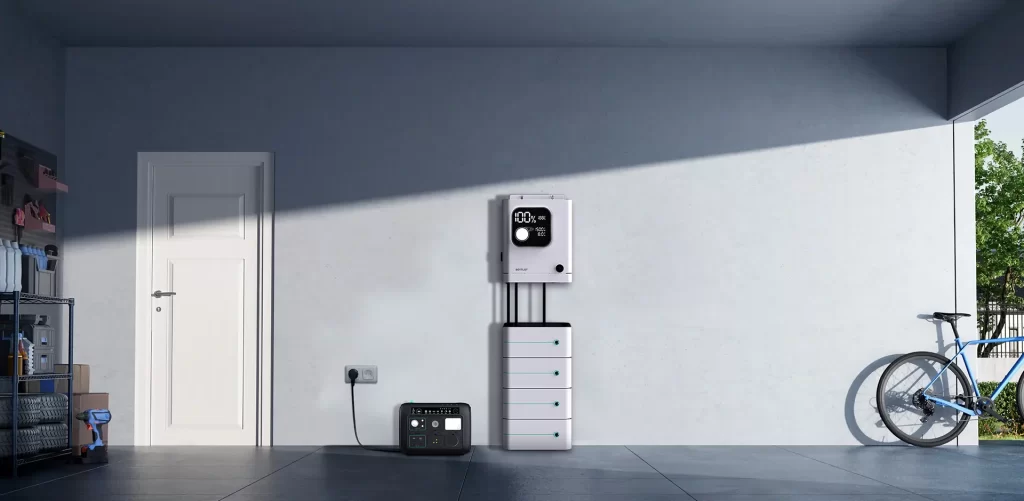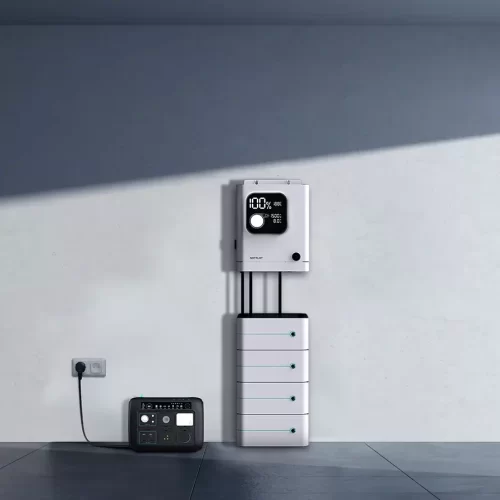In the global transition to clean energy, solar technology is emerging as a leader in the revolution. Faced with the serious challenges of climate change and the depletion of fossil fuels, solar energy not only represents the future of renewable energy but is also key to achieving sustainable development. This article provides an in-depth analysis of the latest advances in solar technology, discusses its far-reaching economic and environmental impacts, and demonstrates how Sottlot is contributing to a greener lifestyle through its innovative products, the Alpha800 and Alpha3000.

Technological Innovation: A Leap in Efficiency and Reliability for Solar Energy
Recent years have seen significant advancements in solar technology, laying a solid foundation for lowering energy costs, increasing efficiency, and enhancing system reliability. High-efficiency solar cells, such as PERC (Passivated Emitter and Rear Cell) and HJT (Heterojunction), have substantially improved photovoltaic conversion efficiency and reduced power generation costs. Additionally, the rise of smart energy storage solutions has made solar power generation more flexible and efficient in energy management. Technologies like lithium-ion batteries and flow batteries offer more adaptable and efficient solutions for solar energy storage. The integration of artificial intelligence and IoT technology provides robust support for predictive maintenance and real-time monitoring of solar energy systems, further enhancing reliability.
Economic Benefits: Financial Advantages of Solar Technology for Homes and Businesses
The widespread adoption of solar technology brings significant financial benefits to both homes and businesses. By installing solar power systems, users can ensure a steady supply of electricity, crucial for equipment that requires a stable power source. In areas with unstable power grids, frequent outages and voltage fluctuations can damage electrical equipment, leading to financial losses. Solar power systems, as independent power sources, can maintain power supply during grid failures, effectively preventing equipment damage and economic losses.
Additionally, solar power systems reduce electricity bills. Solar energy is virtually limitless, and its generation costs continue to decrease with technological advancements and scaling. By utilizing solar power, users can significantly reduce their dependence on external power grids, lowering their electricity expenses. This economic benefit is especially pronounced during periods of high or fluctuating electricity prices. Moreover, solar power systems have relatively low maintenance costs and a lifespan exceeding 20 years, meaning users can enjoy a stable energy supply without frequent equipment replacements.
Environmental Benefits: Solar Technology’s Contribution to Environmental Protection
The positive environmental impact of widespread solar technology adoption is undeniable. As a clean, non-polluting energy source, solar power significantly reduces greenhouse gas emissions and mitigates global warming. Unlike fossil fuels, solar power generation produces no harmful gases or particles like carbon dioxide and sulfur dioxide, effectively reducing air pollution and acid rain. The expansion of solar energy technology also promotes a diversified and cleaner energy structure, decreasing reliance on fossil fuels and conserving limited natural resources.
Solar technology also plays a crucial role in ecosystem protection. Solar power generation requires no significant water resources, greatly reducing water consumption and pollution compared to traditional power generation methods. Solar energy facilities can often be integrated into existing ecosystems without substantial impacts on biodiversity. Thus, solar technology contributes to climate change mitigation while protecting ecosystems.
Practical Application: Market Impact of Sottlot Products
- Alpha800 Solar Outdoor Portable Mobile Power Station
With its high-efficiency solar energy conversion rate and portable design, the Alpha800 is widely used in outdoor adventures, camping, fieldwork, and other scenarios. It not only provides reliable power support for outdoor activities but also reduces reliance on traditional generators and batteries.
- Economic Benefits:
- Portability: The Alpha800’s portability makes it particularly attractive to consumers who need mobile power, such as outdoor enthusiasts or those requiring emergency power solutions.
- Versatility: It integrates a variety of features, such as wireless charging and AI voice control, offering users a comprehensive energy solution and reducing the need for multiple separate devices.
- Environmental Benefits:
- Solar Power Utilization: The Alpha800 reduces reliance on traditional energy sources by charging via solar power, which helps lower carbon emissions.
- Safety and Durability: The use of LFP (Lithium Iron Phosphate) batteries maintains safety and efficiency even at high temperatures, reducing the frequency of battery replacements and the environmental impact of discarded batteries.
- Alpha3000 Solar Home Storage Inverter
Designed for home use, the Alpha3000 Solar Home Storage Inverter optimizes home energy consumption and enhances self-sufficiency.
- Economic Benefits:
- Intelligent Charge Allocation: The Alpha3000 intelligently manages solar and grid charging, prioritizing solar energy use, which helps users save on electricity costs.
- Long-term Power Supply: In areas with unstable power supplies, the Alpha3000 serves as a backup power source, ensuring that critical equipment and systems remain operational.
- Environmental Benefits:
- Reduces Stress on the Grid: By utilizing solar power and smart charging systems, the Alpha3000 alleviates the strain on the traditional power grid, helping to reduce overall energy consumption and carbon footprint.
- Promotes the Use of Renewable Energy: Encouraging users to rely more on solar energy supports the widespread adoption and application of renewable energy sources.
Vision for the Future: The Unlimited Potential of Solar Technology
With ongoing technological advancements, the future of solar technology is filled with potential. The application of new materials, the widespread adoption of intelligent control systems, and deeper integration with energy storage technology will create new opportunities for solar technology development. As global demand for renewable energy grows, the potential of the solar market will continue to expand. Continuous technological innovation and cross-industry collaboration will be crucial in driving a green lifestyle forward.
Sottlot is committed to technological innovation and product optimization, continually improving the performance and reliability of solar technology. Sottlot also aims to strengthen collaboration across the industry supply chain to promote the adoption of solar technology. Through ongoing innovation and cooperation, Sottlot is confident in its ability to contribute to a global green lifestyle.
Moving Forward Together: Creating a Green and Sustainable Future
As a driving force behind green lifestyles, the economic and environmental benefits of solar technology are significant. By lowering energy costs, improving operational efficiency, reducing greenhouse gas emissions, and relying on renewable energy, solar technology is playing a critical role in the global energy transition and sustainable development. We encourage companies and individuals to embrace solar technology and work together to promote a green lifestyle. Let us collectively ensure a better, more livable planet for future generations.




